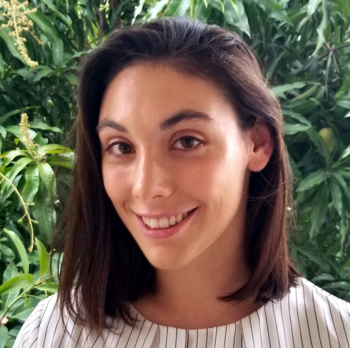Paula Stocco (Mechanical Engineering) | Robotics and Underactuated Systems (German Research Center for Artificial Intelligence)
Paula Stocco (Mechanical Engineering) | Robotics and Underactuated Systems (German Research Center for Artificial Intelligence)

I spent twelve weeks from June to September 2022 at the Deutsches Forschungszentrum für Künstliche Intelligenz (DFKI) (German Research Center for Artificial Intelligence) Robotics Innovation Center in Bremen, Germany. It was a successful collaboration, during which I learned several new controls topics related to underactuated systems and was able to contribute to an existing project leading to a conference paper submission. I was able to visit several German cities, engage with German citizens to hear about their cultural traditions and thoughts, and experience some of them myself.
During my internship, I worked with full-time researchers to continue a project aimed at expanding basic underactuated control capabilities with an eye towards making robotics accessible to the public through open-source code. Being in Germany at this German robotics research institute was eye-opening for me to understand how research is conducted and connected across the globe. Not only had my colleagues been educated in institutions around the globe and brought unique insight to Germany, but they were also well versed in current research literature, emphasizing the need for international collaboration as a means to achieve progress through exchanging ideas.
The lab work was fast-paced and collaborative from the first day. The project lead, Mahdi Javadi, took time away from preparing to defend his Master’s Thesis to introduce me to the prototype system, by the next day I was hands on with a demo system, and on the third day I was assigned and working through the first underactuated controls challenge involving motor control and collision.
Expectations for the Summer and reach goals were all clearly communicated on the first day, as well as the expectation that I should ask for help with any technical challenge or question I had. In addition to Mahdi, I had two other official mentors, who were present as weekly lab group meetings. There I could summarize my achievement of the previous week and receive feedback on the next milestone.
The first week involved designing bench methods, conducting experiments, analyzing data and reviewing results. The second week involved translating those results into a control scheme, writing the Python script and debugging on the physical hardware. The third week was an introduction to Trajectory Optimization using Direct Collocation with Drake. My mentors gave me time to read through introductory material and watch lectures and review Drake online documentation. The fourth week I obtained a feasible trajectory. I then adapted existing Python scripts to play it on the physical system using Proportional Derivative (PD) control. This achieved the first milestone for the summer and lay the groundwork for the remaining achievements.
In addition to research work, the Underactuated Lab organizes the yearly ‘Summer of Underactuation’ event with project demonstrations and general introduction for the DFKI facility. This added to the summer experience by providing an opportunity to reflect on the project and in having to explain it to others fully digest it for myself. It was a well-organized way to hear about the rest of the projects and made a useful introduction for the whole team. This presentation was held in mid-July.
The next task was to build on the initial achievement to expand the motion and prove its robustness and reliability. Mahdi supported me through this and together we adjusted the code and hardware to obtain the results and data.
In the next two weeks I repeated the expanded motion using a [TVLQR] framework developed by Mahdi for trajectory stabilization, rather than PD, and in the final month I repeated the process for a similar related motion and was able to achieve the full scope with both controllers.
The final week of the internship involved obtaining data in the format needed for publication and writing the paper proposal, with paper and visual edits continuing until the submission deadline.
The lab had an overall collaborative atmosphere. Interns and full-time researchers kept their office doors open, and often came in to discuss possible approaches to problems they were grappling with or just to hear a different perspective. This created an energetic workplace that I looked forward to attending every day.
In addition to intellectual exchange, there was active cultural exchange. Work at DFKI was conducted in English, but German pastries were bought to be shared with Kaffee in the break room, and there many lively discussions on current events and comparisons on different regional practices was enlightening.
It was a challenging and rewarding experience in both regards.
